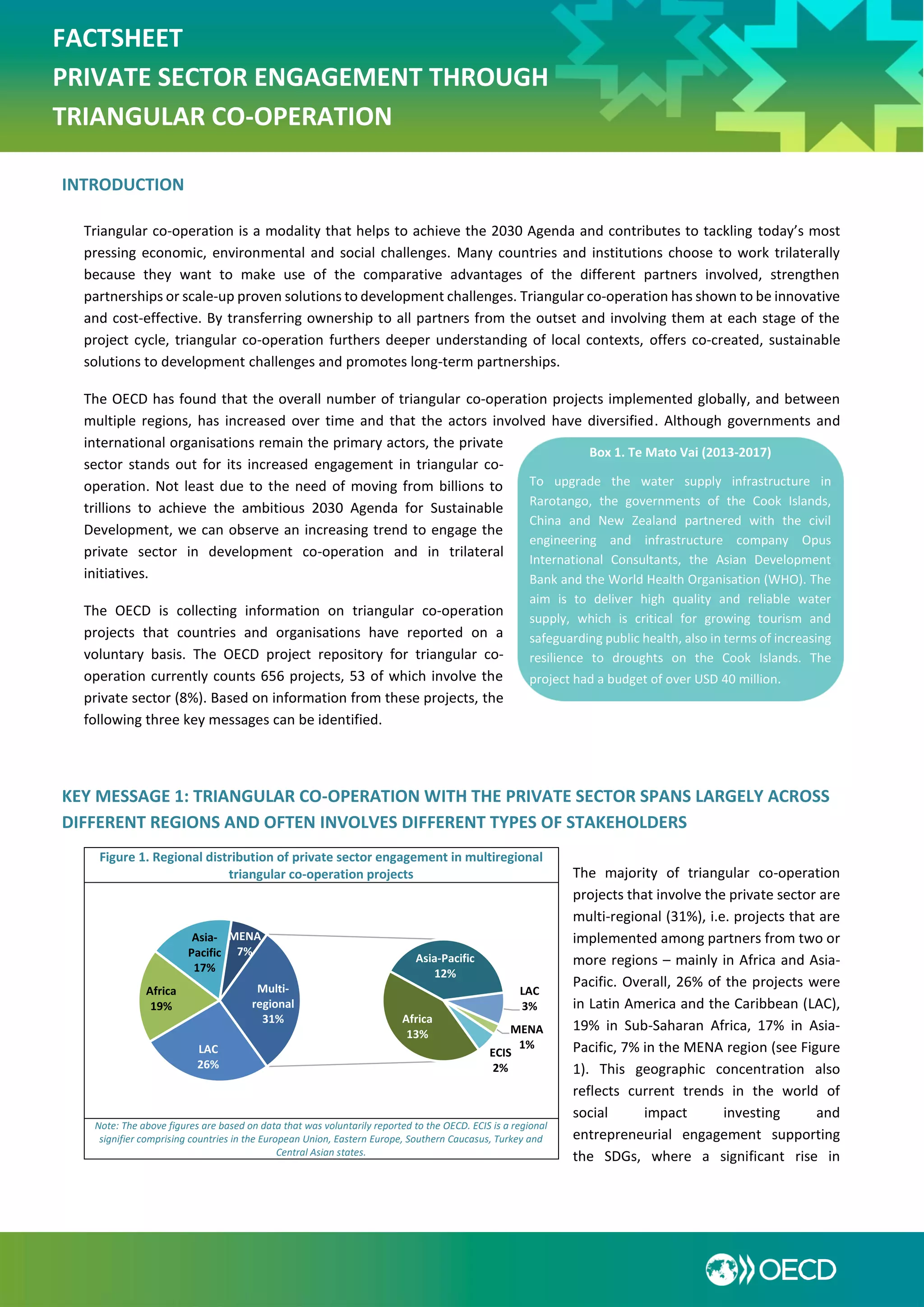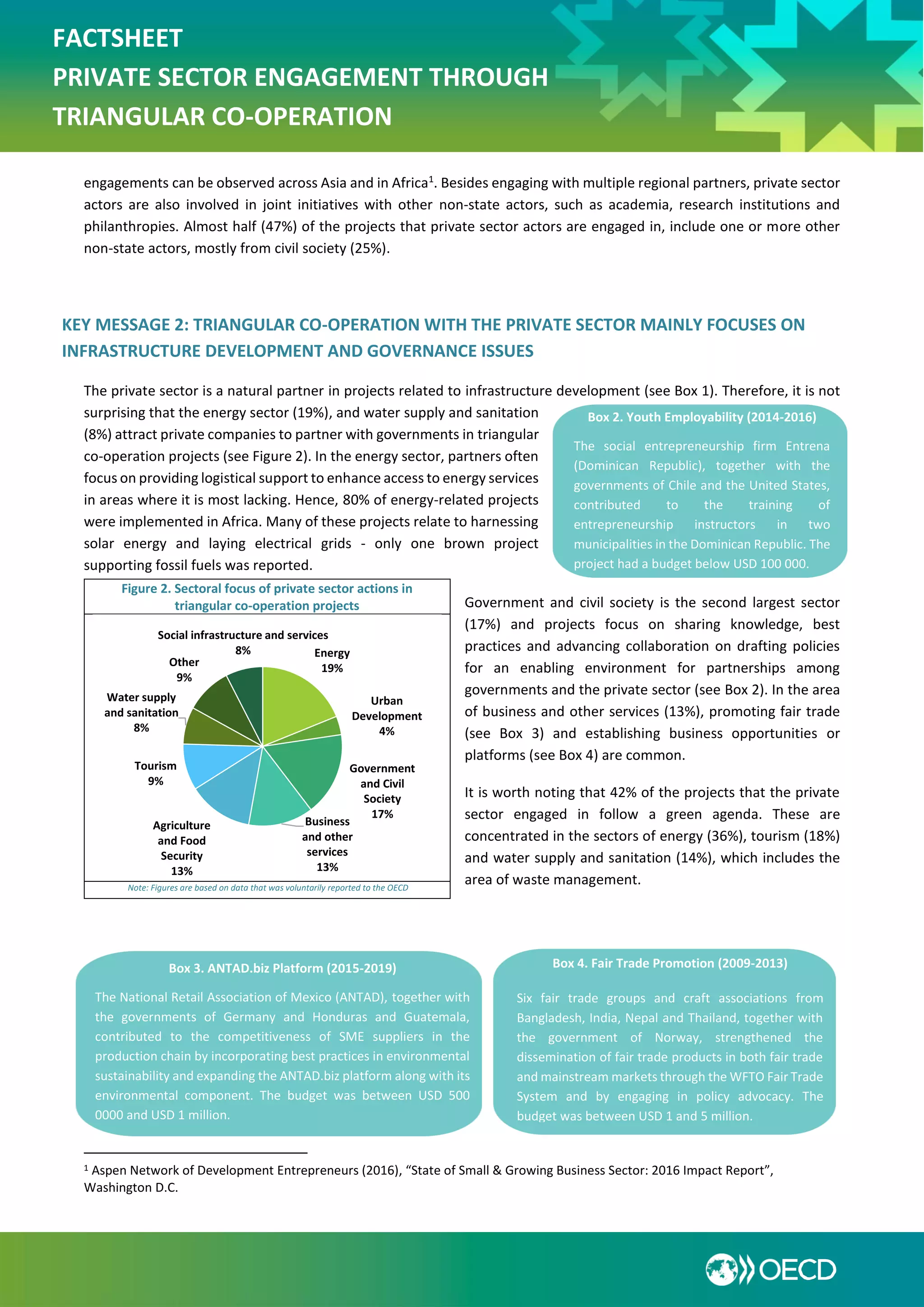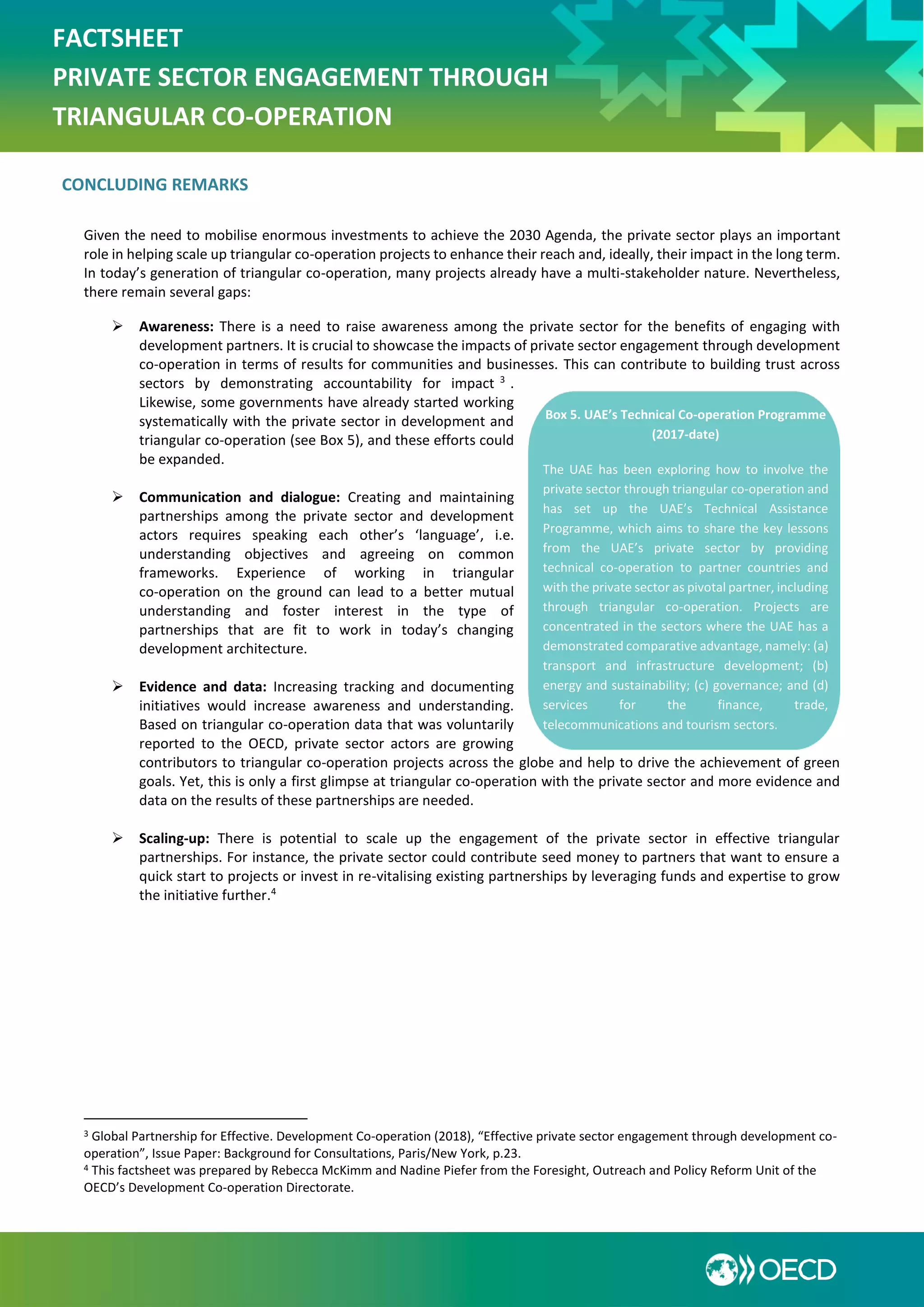The document discusses private sector engagement in triangular co-operation projects. Some key points:
- Over half of projects involving the private sector are multi-regional, mainly across Africa, Asia-Pacific, and Latin America. They often include different types of stakeholders like academia and non-profits.
- Projects focus on infrastructure like energy and water, as well as governance. Energy projects concentrate on expanding energy access in Africa.
- Most projects have budgets under $1 million and last 2-4 years, indicating triangular cooperation with the private sector is not overly costly or time-intensive.



